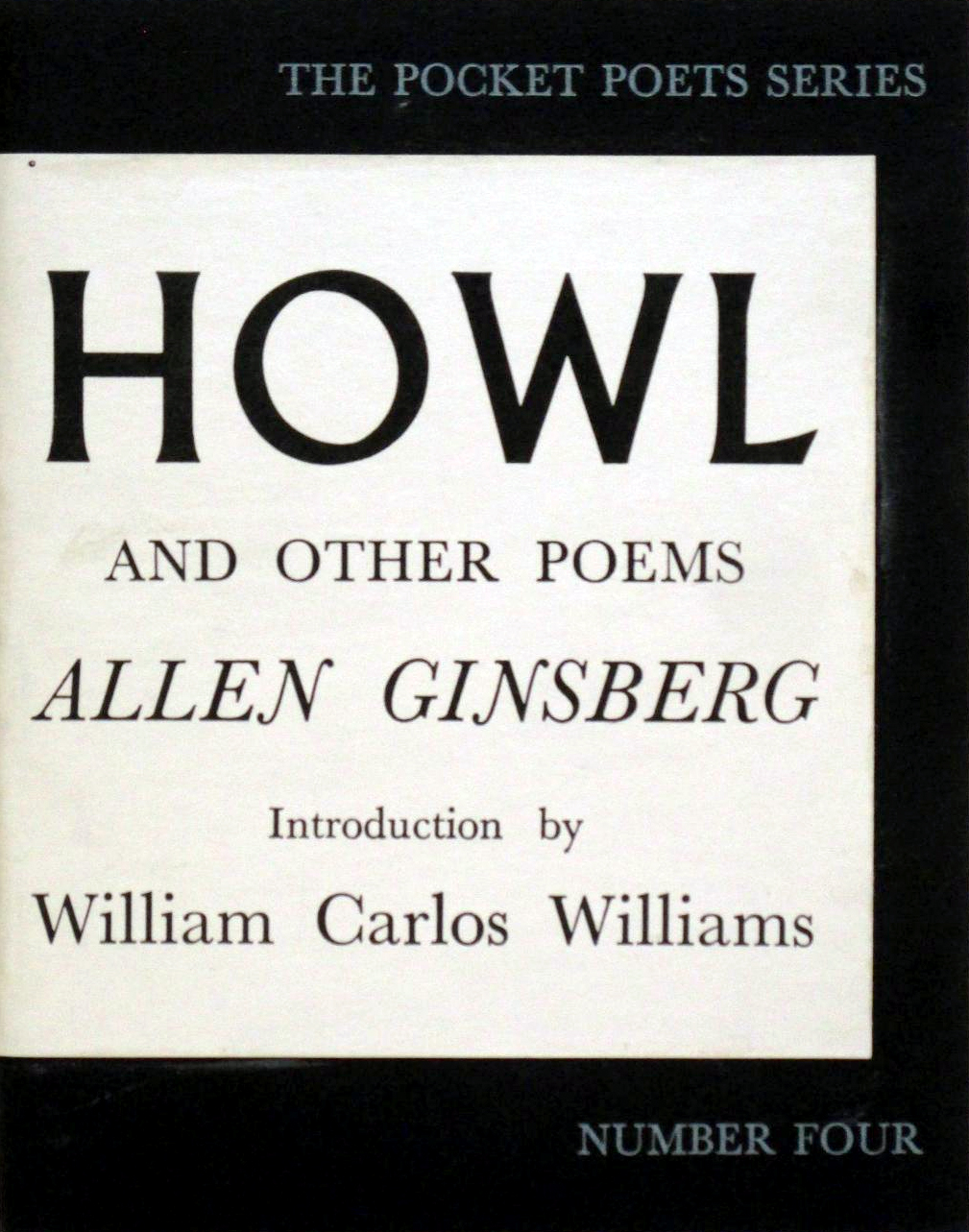the material so described is dangerous to some unspecified, susceptible reader. It is interesting that the person applying such standards of censorship rarely feels as if their own physical or moral health is in jeopardy. The desire to censor is not limited, however, to crackpots and bigots. There is in most of us the desire to make the world conform to our own views. And it takes all of the force of our own reason as well as our legal institutions to defy so human an urge.... You will either add to liberal, educating thinking or by your decision you will add fuel to the fire of ignorance.
The above is a quote from the movie Howl, which claims that every word uttered in the movie was uttered by that person in real life, so presumably this monologue was uttered in the courtroom when the book was on trial for obscenity. (

Howl is a poem, is a movie, is a biography. It can be viewed as an explication of the poem itself. It gives readings of the poem, followed by interviews and scenes acted out as described to add historical and biographic context to the work. It also has animations of the surreal imagery described in the poem. In the trial, critics critique and explicate the work with varying degrees of success.
The poem marks a turning point in Allen Ginsberg's life and his art--a time where he clicked from confusion about himself and uncertainty about his art into clarity.
The trial went in Ginsberg's favor (and 90% of the movie does, too), but it's interesting that sometimes the film backs up the opposition’s point of view by having Ginsberg say that sometimes he doesn't know what he meant, as well as having Ginsberg's [recreated] audience revel more in the obscenities. Now one might say they were reveling in the rebelling against the moral authority that calls it obscenity, but even here Ginsberg said he just wanted to write a poem his father wouldn't approve of, with no hope of getting it published.
The movie has fantastic cuts, forcing viewers to pause and think about what’s been said, giving weight to certain lines.
What the film did not address are the main strengths of the poem, which is the bold voice and strong sound (they are working mostly from quotations in that time period—which limits what they can do):
I saw the best minds of my generation destroyed by madness, starving hysterical naked,
dragging themselves through the negro streets at dawn looking for an angry fix,
angelheaded hipsters burning for the ancient heavenly connection to the starry dynamo in the machinery of night,
 First, we have the bold opening salvo, which seems both a proclamation of grandeur (not unlike Whitman's claims) and a political call to action--that this generation is going through something unique in its time although if the movie is to be believed, he’s referring to his friends like the one mentioned in the dedication, who hadn’t had much cultural relevance up to the writing of the poem. But still it’s told with such authority that we buy into its claims.
First, we have the bold opening salvo, which seems both a proclamation of grandeur (not unlike Whitman's claims) and a political call to action--that this generation is going through something unique in its time although if the movie is to be believed, he’s referring to his friends like the one mentioned in the dedication, who hadn’t had much cultural relevance up to the writing of the poem. But still it’s told with such authority that we buy into its claims.
Rhythm and sound play a major part in the poem’s memorability: all the “n” and “m” consonance and alliterations. The lineation of the poem follows, as the movie pointed out, Walt Whitman, who (as the movie did not point out) was following the Biblical rhythms one might find in the King James Bible.
Also, a big component of the poem’s resonance is the culturally transgressive nature of this outlier generation, which probably rang an even stronger bell with the 60s generation that followed his Beats. The drugs seem a quest for transcendence—religious and otherwise, aids to plumb jazz and their world. It is curious that in 1955-6, there were still [asterisked] words that the poet felt should not be printed.
A closing quote (the opening and closing quotes have past, present and future relevance):
Life is not encased in one formula whereby everyone acts the same and conforms to a particular pattern. No two persons think alike.... An author should be real in treating his subject and be allowed to express his thoughts and ideas in his own words.

No comments:
Post a Comment